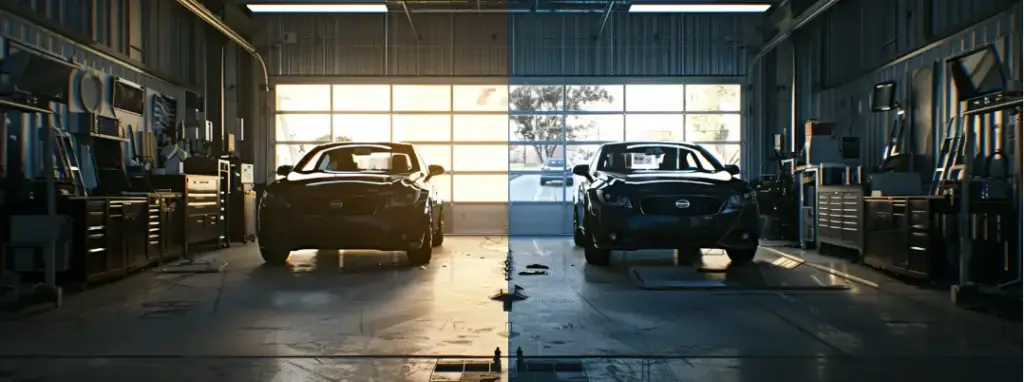When your car’s original warranty nears its end, or if you’re investing in a used vehicle, considering an extended auto warranty is a strategic move. Such a warranty can save you from costly repairs and provide peace of mind as you navigate the uncertainties of vehicle maintenance. However, not all warranties are created equal, and their protection can significantly vary. To make an informed decision, it’s essential to understand the intricate details and fine print of the plans available to you. Below, we delve into the critical factors you should evaluate to choose the best extended warranty for your automotive needs.
Understanding Extended Auto Warranty Coverage Options
An extended auto warranty can come in various shapes and sizes, each tailored to different needs and budgets. The most comprehensive is the bumper-to-bumper warranty, mirroring the coverage of most original manufacturer warranties, while powertrain warranties cater primarily to the engine, transmission, and drive components. You can also have a stated component coverage for specific parts listed in the contract.
Selecting the right type of coverage requires closely examining your driving habits, vehicle age, and model-specific known issues. Consider the likelihood of certain repairs, and decide whether you prefer paying for broader protection upfront or taking the risk with a more limited plan. A well-suited extended warranty can save you significant money in the long run, mitigating the costs of untimely mechanical failures.
It is important to read the fine print for coverage limits or exclusions that might affect the utility of your extended warranty. Some warranties may exclude certain types of repairs or only cover parts and not the labour required for repairs. Understanding what’s covered and what isn’t can help avoid any surprises when it comes time to use your warranty.
Assessing the Reputation of the Warranty Provider

Not all warranty companies stand behind their products equally. Research the reputation of any extended warranty provider you’re considering to ensure they have a track record for honouring claims and providing satisfactory customer service. To get customer feedback, it’s wise to seek extended auto warranty reviews and ratings on independent platforms.
Consider the company’s longevity in the business—a warranty provider that has been around for years, or even decades, is more likely to be reliable. Look for providers backed by an insurer, which suggests financial stability and capacity to pay out claims. Insurer backing is a key security feature for any extended warranty plan.
Additionally, a reputable provider should offer transparent terms and conditions, and customer service representatives should be easily reachable and knowledgeable. Ask about the claims process to ensure it’s straightforward and efficient. Avoid companies with a history of dispute claims or requiring excessive paperwork to process a repair.
Comparing Costs and Payment Plans for Extended Warranties

Cost is often a deciding factor when considering an extended auto warranty. Prices can vary significantly based on the level of coverage, the vehicle’s make and model, and the deductible chosen. Be sure to gather quotes from several providers to compare the costs relative to the coverage provided.
When reviewing quotes, pay special attention to the deductible. A higher deductible usually results in a lower overall cost for the warranty but higher out-of-pocket expenses for each repair. Decide which balance between upfront costs and potential future repair costs is most comfortable for you.
Another consideration is the payment structure offered by the provider. Some companies may require full payment upfront, while others offer monthly payment plans. A payment plan can ease the financial burden, but check for any interest or fees that might apply.
Checking Compatibility With Your Vehicle and Existing Warranty Policies

Consider your vehicle’s make, model, and current condition when looking for an extended warranty. Some providers do not cover certain brands or high-mileage vehicles, while others might have strict requirements on vehicle condition or maintenance records. Ensure that the extended warranty aligns with your specific vehicle’s criteria.
If your vehicle still has an existing manufacturer’s warranty, understand how the extended warranty will complement or extend your current coverage. Some extended warranties might only take effect after the original warranty expires, so it’s important to coordinate the timing to ensure continuous coverage. Consider any overlap in coverage between an extended warranty and other protection you may have, such as from a credit card or an auto insurance policy. Additionally, if you are in Edmonton, checking into edmonton auto insurance options can help ensure that all aspects of your vehicle’s protection are well-managed.
Overall, selecting an extended auto warranty requires thoughtful consideration of various factors, including coverage options, provider reputation, cost, claims process, and compatibility with your vehicle. You’ll secure the warranty that best suits and reassures your needs by conducting thorough research and comparing plans carefully. Always remember that an extended warranty should decrease, not increase, your automotive headaches, leading to a more enjoyable vehicle ownership experience.
